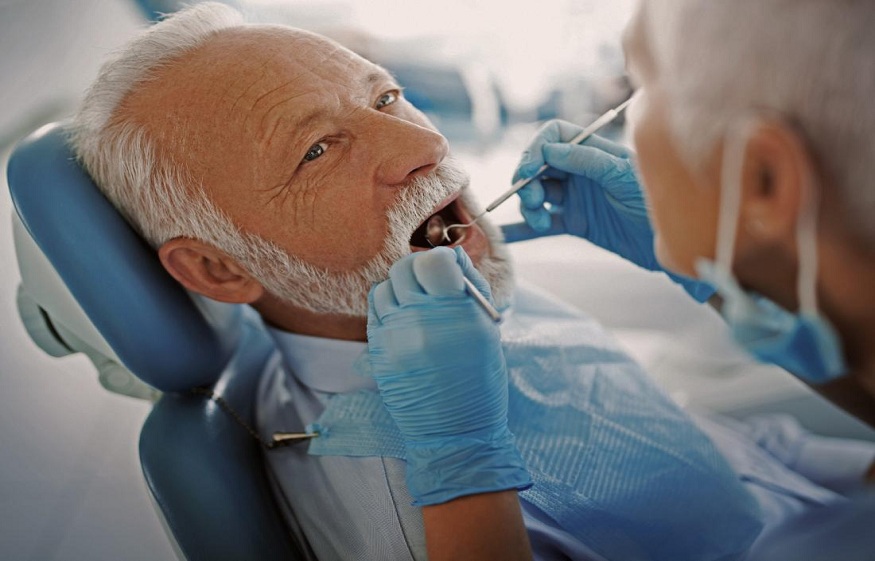Oral cancer is on the rise, which is primarily associated with use of tobacco in various forms, excessive consumption of alcohol, or the sexually-transmitted human papillomavirus (HPV) diseases. Oral cancer can be treated and cured, especially if it is detected at an early stage buta person having oral cancer often doesn’t realize that something is wrong. There are many myths about the disease that can make diagnosis difficult.
Your first line of defense against oral cancer is prevention against the risk factors. Regular dental check-ups and limiting unhealthy habits that trigger the disease go a long way in keeping you from the risk of developing oral cancer.
How Oral Cancer Gets diagnosed?
Oral cancer is often discovered when it has spread to other parts of the body, increasing the risk of developing secondary tumors. Diagnosing cancerous or pre-cancerous cell growth is only possible if a patient experiences symptoms that cause troublein his/her lifestyle. The doctor will perform a physical examination, including a biopsy, complete examination of the head and the neck exam, or imaging tests. Along with a clinical test, your specialist can suggest a set of investigationsto diagnose oral cancer that may include:
- Barium Swallow (Upper GI series)
- Biopsy
- Dental Exam
- Endoscopy
- CT Scan
- MRI
- PET Scan
- Indirect pharyngoscopy and laryngoscopy
- X-ray
Symptoms
Unlike some other types of cancer, symptoms for oral cancer can be self-assessed. If you find noticeable changes that last for more than two to three weeks, seek immediatemedical attention. Some of the signs are:
- Persistent soreness, irritation, or thickness in mouth and throat
- Red or white patches in the mouth
- Hoarseness and some vocal changes
- Unusual lumps or swelling
- Numbness in your mouth
- Unexplained weight loss
- Difficulty in swallowing, chewing or speaking
- Consistent nosebleeds
- Ear pain
- Pain in jaw and tongue
- Ulcers that don’t heal
Risk Factors
Men are more likely to develop oral or oropharyngeal cancers, as these cancers are believd to be related to heavy use of tobacco products, or alcohol. “Mostly, we receive patients between ages 50 to 60, the ones who may have developed cancer at a younger age but their symptoms showed up later, when the cancer has metastasized to local areas of the mouth,” explains an oncologist of AMRI Hospitals.
Although the exact cause of having cancer is oral idiopathic, there are some common risk factors associated with the condition, that include:
- Uncontrolled use of any form of tobacco
- Unlimited consumption of alcohol
- Excessive exposure to sun
- Human papillomavirus (HPV) infection
- Ill-fitted dentures
- Fanconi anaemia,an inherited condition
- Weakened immune system
What are the stages of oral cancer?
The stage at which oral cancer is detected is one of the important factors in evaluating the right treatment option, according to an individual’s condition.There are four stages of oral cancer:
- Stage 1: It is when tumors of 2 cm or smaller are detected that haven’t spread to the lymph nodes
- Stage 2: Cancerous tumor has grown to about 2 to 4 cm but the cells haven’t spread to the lymph nodes
- Stage 3: Either the tumor has become larger than 4 cm, yet hasn’t spread to the lymph nodes, or it has spread to lymph nodes, irrespective of its size. However, there are still chances that no other parts of the body have been affected from the tumor yet
- Stage 4: The tumor can be of any size, but the cancerous cells have spread to nearby tissues, including lymph nodes and other parts. of the body
How can Oral Cancer be treated?
The survival rate for an oral cancer is determined depending on which part of the mouth has been majorly affected, its type, stage, progression, and the patient’s overall condition. Ideally, a multidisciplinary approach is involved in treating oral cancer, involving surgeons, radiologists, chemotherapy oncologists, dental surgeons, nutritionists, and rehabilitation specialists. Treatment options suitable for oral cancer are:
- Chemotherapy
- Radiation therapy (use of external beam radiation therapy (EBRT) and brachytherapy)
- Surgery (involving tumor resection to remove a whole tumor)
- Targeted therapies, involving use of drugs targetingEGFR (epidermal growth factor receptors)
- Immunotherapy
Final Thought
Undergoing cancer treatment can be hard both physically and mentally,besides it being normal to feel overwhelmed. Talk to your doctor about your concerns, so that you receive proper guidance on coping techniques. While treatment is necessary, with the right direction and techniques, it will be easy to reduce the effect of cancer and its symptoms on your daily life.

